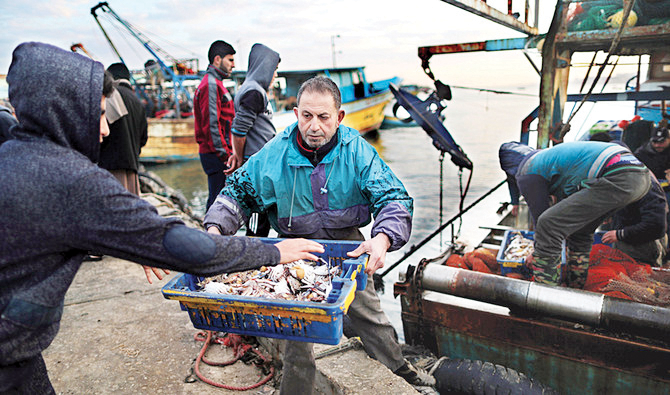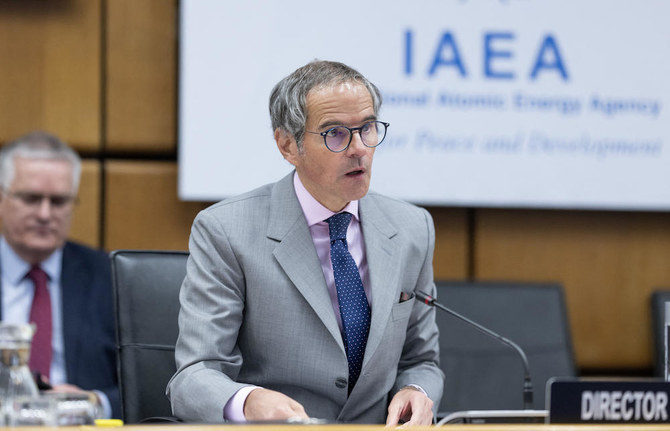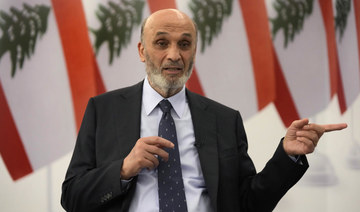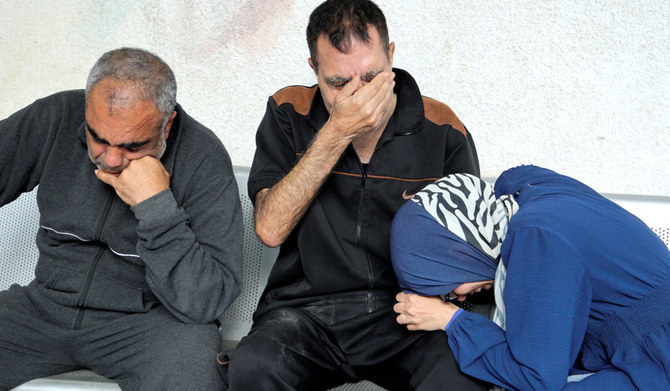GAZA STRIP: Abed Rabbo Adwan, who learned a few years ago how to prepare herring, prefers to cook the fish at his home in the city of Rafah, which is in the southern Gaza Strip.
Herring and fesikh fish are used as the main dish on the tables of the majority of Gaza residents during the first day of Eid Al-Fitr because they believe it increases the appetite and is useful for the stomach following a month of fasting.
Its popularity has spread throughout Palestinian homes, especially in the southern Gaza Strip, adjacent to the border with Egypt.
Adwan said that preparing herring at home guarantees quality, and at a much lower price compared to what is available in the market, which is usually prepared locally or imported from Israel.
He said his family helps him prepare the fish, which creates an atmosphere of happiness during the last days of Ramadan and ahead of Eid.
The local fish industry is flourishing as the import of herring fish from Israel, which for years had been the main supplier for Gaza’s needs, has decreased significantly. The price of a kilo of locally prepared smoked fish is 20 shekels ($6), about half the price of its imported counterpart from Israel.
To start, Adwan buys a kilo of mackerel or frozen tuna, cleans the fish, and then salts it with some help from his family. After that, he smokes the fish in a primitive way that does not cost much.
The preparation begins with removing its entrails, filling the cleaned fish with salt, and leaving it for 24 hours. After washing it well and then drying the fish, he hangs it vertically with iron clips over iron bars inside an oven. The flames are ignited with charcoal and sawdust.
Adwan does not have a furnace. He uses an iron container as an oven and closes it tightly to block the air so the fish inside does not catch fire or get spoiled.
“The fish remains in this position, exposed to smoke, for about two hours,” he said. “This gives the fish the taste of smoke and turns its color from white to yellowish to gold. Then it is ready to eat.”
As some in his family prefer fesikh to herring for breakfast on the first day of Eid, Adwan makes a limited amount of it using a different method. A kilo of fesikh in the market ranges between 10 and 30 shekels and it is stored in a place away from the air for about a month.
Traders say that Gaza produces large quantities of herring and fesikh which is sufficient for local consumption. Gaza can even export the fish if given the opportunity.
Ibrahim Hejazy, the owner of one of the largest herring plants in Gaza, said he started in the industry about seven years ago with a limited quantity that was for personal consumption. The idea developed and he set up a factory that started to produce quantity.
“I was encouraged by the great turnout to expand the factory and bring in a special oven for preparation,” Hejazy said. “Today, we have become the most famous factory in the Gaza Strip, distributing what we produce to merchants, distributors and shops.”
Hejazi took over other bakeries and doubled his workforce, which would have been overloaded with work in the middle of Ramadan. They work all night and day preparing smoked fish to meet the market’s needs.

























